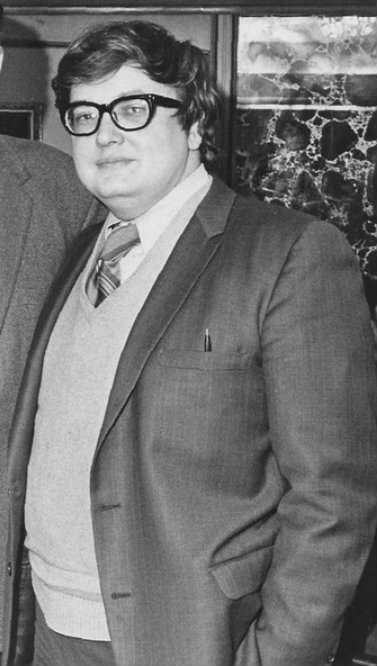Roger Ebert Taught People How to Argue About Movies

In the pantheon of movie critics, there are few who can claim as much influence as Roger Ebert. You could reasonably argue that Pauline Kael was more important, that her influence on the form was deeper and more lasting, that she, unlike Ebert changed the way that movies were made.
Yet there's a crucial distinction between the two: Despite Kael's love of glorious trash, she was, at heart, an elite moviegoer writing for other elite moviegoers. Ebert, on the other hand, was far more concerned with mass appeal, and his straightforward prose was accessible and to the point in ways that Kael never really attempted.
That's no small thing for a pop culture critic, whose ultimate job is to educate the wider public about the form. And his insistence on accessibility not only helped Ebert reach a bigger, broader audience than Kael, it made him a more popular cinematic guide for the general public. Kael may have changed movie making, but Ebert changed movie watching.
And a big part of the way he did that was by making debate about film accessible. Siskel & Ebert, the TV show he co-hosted with rival Chicago movie critic Gene Siskel, was billed as a movie review show, and that's true enough. But as much as it was a show about reviewing films, it was even more a show about arguing about movies.
The cantankerous duo showed viewers what it meant to enjoy movies in the company of another, offering a feisty, competitive model of film-fan friendship. Their unscripted on-screen dialogues, meanwhile, helped a generation of moviegoers understand that it was not enough to merely have an opinion about a film; you also had to defend it. Indeed, a round of opinionated post-film jousting could be an essential part of the moviegoing experience.
That sensibility helped put movie watching in a social context. The show recognized that movie viewing and criticism was not a strictly solitary affair, but a community project; it operated on the assumption that a critic's views are shaped as much by the people he argues with as the movies he watches. That, in turn, allowed the program to transform the lonely work of critical assessment and argument into a popular and engaging spectator sport, and inspired legions of film nuts and amateur film critics to engage in their own friendly duels with each other.
That probably explains a lot about why Ebert took so well to new media late in life: It wasn't just that he had always written in the conversational style that became the norm on the web. It was also that he relished the sport of debate, the ruckus of freewheeling conversation about the things he loved and hated in the world, with movies at the top of the list.
At times Ebert was a hater; more often he was prone to celebration (a little too much, in my opinion). But a subtext of virtually all of his life and work was that if you loved movies, you would argue about them — and also for them.
The same, I think, should go for those of us who also love movie criticism. I disagreed with many of Ebert's critical judgments, and I wasn't particularly drawn to his plainspoken style of reviewing, which often seemed hasty and, at least when reviewing new releases, could be overly focused on character and story basics at the expense of cinematic craftsmanship.
Yet I've always appreciated Ebert for the simple fact that he did more than anyone else to make film criticism—and film arguments—available and accessible to the world at large. In the end, I'm glad he was there to argue with, to offer and defend opinions, and, most of all, to show so many readers and viewers that the arguments were not only worth having; at their best those arguments could be as much or more fun than the movies themselves.


Show Comments (32)